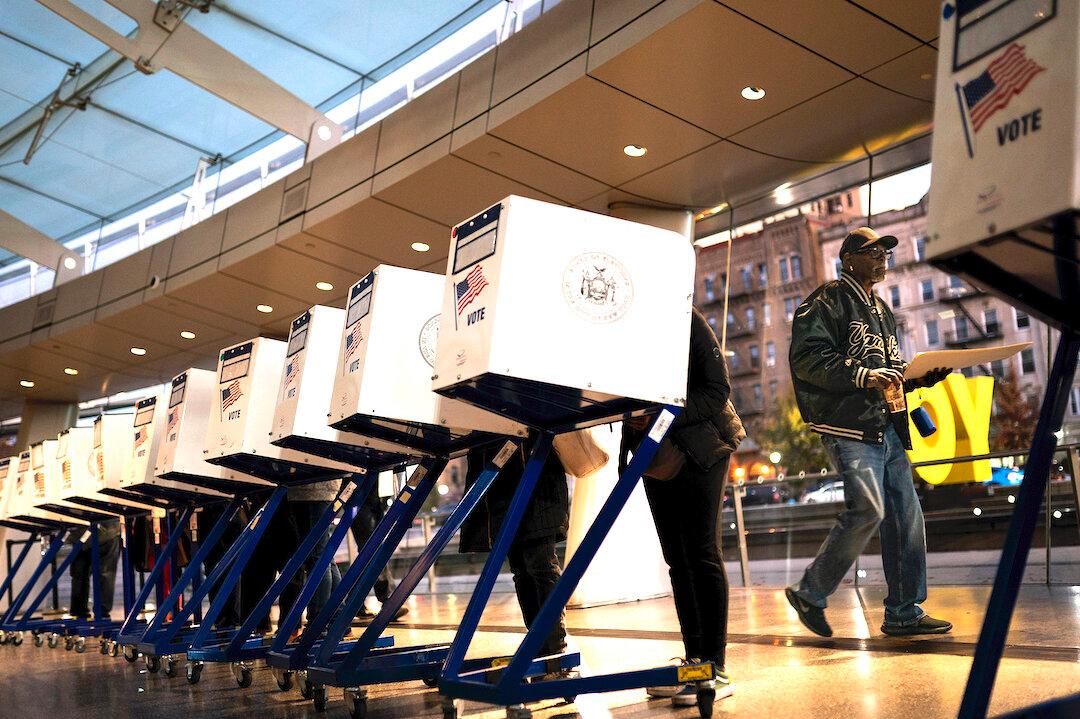NEWTOWN, Pa.—Pennsylvania’s Bucks County, which stretches along the Delaware River north of Philadelphia, has earned a reputation for unpredictable voting outcomes.
Recently dubbed an “ultimate suburban bellwether,” Bucks is a place where Democrats have long outnumbered Republicans. Yet pockets of the county’s blue-collar Democrats had no qualms about defecting to Republican Donald Trump’s camp because his opposition to career politicians resonated with them.
Many are still loyal to the former president’s “Make America Great Again” principles.
David Fiori, who was handing out Republican-slate flyers to voters outside a polling site at New Life Christian Church in Newtown, said Bucks County “is a cross-section of people who moved from New York because it’s too expensive,” as well as lifelong residents.
The new transplants tend to lean Democrat. People who have lived here for decades tend to be staunch Republicans, he said.
‘Republican All the Way’
Rebecca Mack, 47, was among the first two dozen voters in line for the polls to open at the church at about 7 a.m. She started her day with a workout, then headed to cast her vote.
When asked which race stood out most, Mack said, “They’re all important.”




